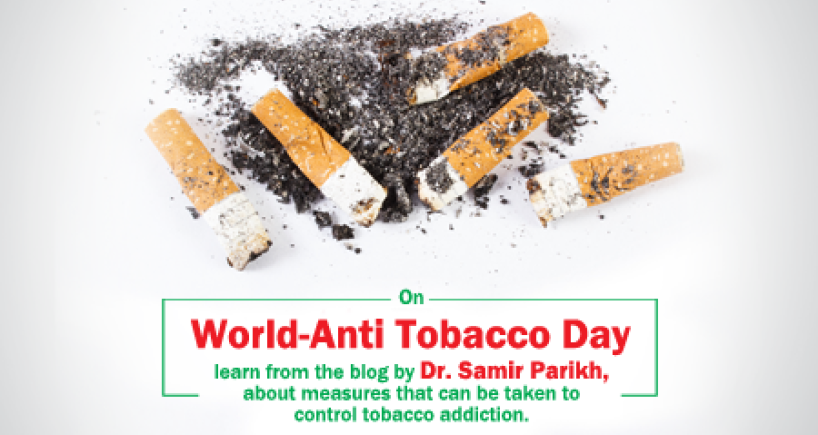
World Day Against Child Labor

Despite the growing awareness about children’s rights, it is extremely common to witness instances of exploitation and child labour which is prevailing at all cross sections of the society till date. In our endeavours of working towards the future of mental health, we need to recognize the role of children who are the future of every nation. As a country, there definitely has been remarkable progress in terms of our recent global advancements over the past few decades. However, at the same time, we are often brought to face some grim realities, which cannot be ignored. It is an inescapable fact that India is home to a large number of child labourers in the world. Such labour is not restricted to the factories, but can also be witnessed in eateries, rag-picking, on the streets, and even domestic help within our homes. As we commemorate today as the World Day against Child Labour, we need to recognize that there has clearly been tremendous advancements and progression in the past few years, we cannot neglect the occurrence of such injustice still prevailing in segments of our society till date.
Child Labour – Hazards and Consequences
If we take a minute to think of the possible consequences or reactions to the instances when our own or another person’s dignity is compromised, we would realize the extent of its adverse influence on our physical, social, behavioural, as well as psychological well-being. Children who are employed in factories and work stations are obviously exposed to the risks of pollution, safety hazards, physical injuries and adverse risk for severe health issues. Further, the lack of amenities, and lack of support and nurturance is an ideal recipe for child neglect, which leads to a higher susceptibility for such child labourers to be victims of abuse, trafficking, etc. In addition to the insensitive working conditions and environment, such children also experience the negative consequences of exhaustion, malnutrition, bearing the brunt of poverty and its mal-effects.
Moreover, it is also important to understand the psychological factors associated with such experiences, including the emotional deprivation, lack of empathy, overcrowding, lack of cognitive stimulation, which could further breed insecurities and lack of self-esteem, as they are deprived of the right to education, lacking opportunities for adequate social development, peer support, and lacking time for self-development and leisure. In addition, such experiences in early childhood increase the risk of psychological hazard, including mental illnesses like depression, anxiety, substance use, acute and post-traumatic stress disorders, while further also increasing the vulnerability towards such children developing risk taking behavior, hostile or anti-social tendencies, oppositional, conduct or defiant behavioural tendencies, or other maladaptive personality traits. Therefore, it would not be incorrect to note that such experiences can leave a scar on the child potentially impacting all areas of the individual’s functioning and well-being in the future.
Need for sensitized approach
As an individual unit of the society, it is we who form the grass-roots of such issues, and therefore, if we can become more sensitive to the rights and needs of others, it will lead to a surge of change across all levels of society. While we do need to reiterate the need for human rights oriented policies, it is more important for all of us as individuals to build dignified habits across all levels of the society. Such dignified habits can be acquired from the school, peers, community, and family, which is the first source through which beliefs about our self, others and the environment are formed. Every member of the society has the fundamental rights, and we need to recognize these rights as a part of our duty to allow them to lead a respectful life without exploitation. Unless we begin to sensitize ourselves to the thoughts, feelings and values of the other people around us, it is not possible for us to respect their dignity, and in return we cannot earn their respect and prevent an infringement of our own rights and feelings as well.
As a society, we need to develop an empathy towards others, showing respect and concern for oneself and others. Recognizing the necessity of imbibing dignity does not suffice, it is our responsibility to bring in a change at least at our individual levels, in order to bring forth a change in the society at large. Therefore, we need to acknowledge our own set of values, be more receptive to alternative points of view, be aware of one’s own and others boundaries and rights.
Societal responsibility
This is a collective responsibility of our society as a whole, and not an individualistic blame to be passing the buck. In addition to promoting an awareness related to the inequalities faced by children in our country, including areas like education, healthcare, protection and safety, we need to capitalize on this day as a wake-up call, to reiterate our efforts towards this cause. These efforts need to be observed as a part of each of our daily lives, in terms of our attitudes and perceptions about this and other such exploited sections of the community. As a society, we need to develop an empathetic attitude, identifying with others’ experiences, and being able to gain a personal perspective while withholding our own judgements. We as a society need to assume responsibility and increase our sensitivity towards the needs and rights of others, especially the children form the future of the nation.
Categories
Clear allMeet the doctor

- Mental Health and Behavioural Sciences | Mental Health and Behavioural Sciences | Psychiatry | Clinical Psychology
-
21 Years
-
900



















